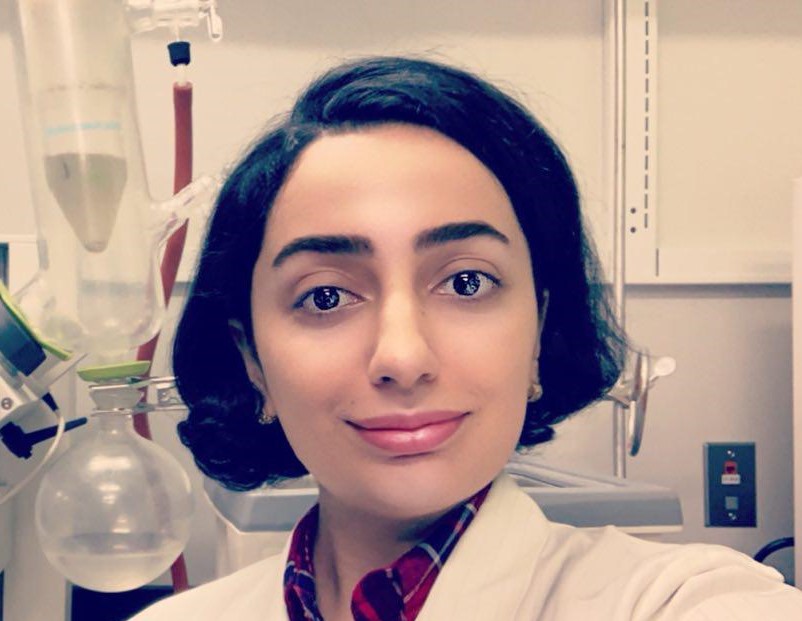Meet The Group

Olivia Favor, Graduate Student: Systemic lupus erythematosus (SLE) is a rheumatic autoimmune disease characterized by a plethora of features including glomerulonephritis, proteinuria, and pulmonary fibrosis. Increased incidence of SLE has been linked to occupational lung exposure to crystalline silica (cSiO2), a byproduct of processing rock, sand, and soil. Numerous in vitro and in vivo studies have demonstrated the promise of omega-3 polyunsaturated fatty acids (PUFAs) in resolving inflammatory conditions such as rheumatoid arthritis, multiple sclerosis, and SLE. Similarly, epoxy-PUFAs, the products of cytochrome P450 epoxygenases acting on PUFAs, have shown therapeutic promise in atherosclerosis, diabetic neuropathy, and other rheumatic conditions; however, their effects on cSiO2-induced SLE remain unknown.
In my project, I aim to investigate the preventative and therapeutic potential of epoxy-PUFAs in both in vitro and in vivo models of cSiO2-induced SLE. My current in vitro work involves classifying the pro- and anti-inflammatory effects of 14 omega-6 and omega-3 epoxy-PUFAs in RAW 264.7 macrophages (Mɸs). In the future, I intend to study these epoxy-PUFAs in Max Planck Institute (MPI) Mɸs, which more closely resemble alveolar Mɸs in phenotype, and the molecular mechanisms by which epoxy-PUFAs exhibit their effects in Mɸs.
Another aspect of my project will involve assessing the effects of co-administering docosahexaenoic acid (DHA) and the soluble epoxide hydrolase inhibitor 1-trifluoromethoxyphenyl-3-(1-propionylpiperidin-4-yl) urea (TPPU) to lupus-prone NZBWF1 mice chronically exposed to cSiO2. Soluble epoxide hydrolase inhibition has been linked to amelioration of rheumatic conditions by reducing conversion of pro-resolving epoxy-PUFAs to less potent dihydroxy-PUFAs. Taken together, these studies will contribute to our knowledge of epoxy-PUFAs as anti-inflammatory agents in rheumatic diseases, with emphasis placed on pulmonary and renal pathologies.

Elham Pourmand, Graduate Student: Analytical Chemistry. Obesity is a critical risk factor that affects human health. Several cohort studies showed that obesity increases the risk of certain cancer development; however, the details of the mechanism remains unknown. Recent studies have shown that visceral adipose tissue (VAT)-conditioned medium from mice fed with high-fat diet leads to transformation of non-tumorigenic epithelial cells. Fibroblast growth factor 2 (FGF2) is suggested to be a critical factor which contributes to such transformation. Therefore, a compound that can inhibit the FGF2-induced epithelial cells transformation could be a potential therapeutic agent to alleviate the risk of cancer development associated with obesity.
Fish oil or omega-3 fatty acid supplements are the most consumed natural product supplement in the nation and are suggested to be beneficial to human health. However, the effect of omega-3 and omega-6 polyunsaturated fatty acids (PUFAs) on the development of cancer remains controversial even though several studies demonstrated that an increase in omega-3 fatty acid intake lowers the risk of development of certain cancers. Recent cohort and animal studies showed that an increase in omega-3 fatty acid consumption increases the in vivo level of corresponding cytochrome P450 metabolites which are the omega-3 epoxy-polyunsaturated fatty acids (omega-3 EpPUFA). Omega-3 EpPUFA is an endogenous lipid mediator that are anti-inflammatory, anti-hypertensive and analgesic. Interestingly, omega-3 EpPUFAs inhibit FGF-2 induced angiogenesis. Due to the diverse beneficial effects of omega-3 EpPUFAs and their effects on FGF2-induced angiogenesis, we hypothesize that omega-3 EpPUFAs inhibit FGF2-induced epithelial cell transformation.
I am involved in synthesizing different isomers of EPA’s epoxy metabolites called epoxyeicosatetraenoic acids (EEQ) and studying their effect on FGF2-induced epithelial cell transformation using a soft agar colony formation assay. Based on our initial results, we found the downstream metabolites of omega-3 EpPUFA are important signaling molecules for FGF2-induced epithelial cell transformation. In the long term, I am going to use LC-MS-MS as powerful analytical tool to quantify the level of PUFA metabolites in a cancerous blood sample.

Morteza Sarparast received the B.Sc. degree in Chemistry from Isfahan University, Iran, in 2012, and M.S degree in Analytical Chemistry from Tarbiat Modares University, Tehran, Iran, in 2015. He is currently working toward the Ph.D. degree in chemistry at Michigan State University, MI, USA. His current research interest is application of bio-nanomaterial in medical diagnostics and therapy.